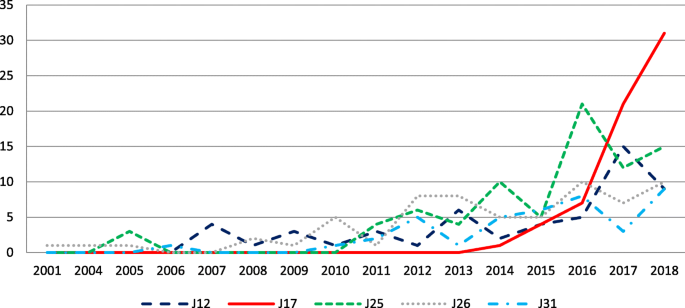

Empowering Futures: STEM Education in Developing Countries
In the realm of global education, the spotlight is increasingly turning towards the vital role of STEM (Science, Technology, Engineering, and Mathematics) in developing countries. This article delves into the transformative impact of STEM education, exploring how it acts as a powerful catalyst for change and progress in regions facing unique challenges.
Bridging Gaps: Advancing STEM Learning in Developing Countries
One of the primary challenges faced by developing nations is the educational disparity. STEM education emerges as a bridge, closing the gap and providing equal opportunities for students to access quality learning. By focusing on these fundamental disciplines, students are equipped with skills that transcend borders and open doors to a multitude of possibilities.
Nurturing Innovation: STEM Education for Global Development
Innovation is the heartbeat of progress, and STEM education serves as the nurturing ground for innovative thinking. Developing countries, often grappling with limited resources, find in STEM an avenue to cultivate inventive minds. Whether it’s designing sustainable solutions or embracing technological advancements, STEM becomes the cornerstone of driving global development.
Building Tomorrow: STEM Initiatives in Developing Nations
Initiatives dedicated to STEM education in developing nations are building the foundation for a brighter tomorrow. These programs go beyond traditional teaching methods, incorporating hands-on experiences and real-world applications. By doing so, they prepare students not just for exams but for the challenges they’ll encounter in their communities and beyond.
From Basics to Brilliance: STEM Growth in Developing Regions
STEM education starts with the basics but doesn’t stop there. It unfolds a journey from foundational knowledge to brilliance. In developing regions, this progression is particularly crucial as it empowers individuals to think critically, solve problems, and contribute meaningfully to the socioeconomic development of their communities.
Catalysts of Change: STEM Education Reshaping Developing Worlds
STEM education acts as a powerful catalyst, sparking a transformative change in developing worlds. It challenges traditional mindsets, encouraging a shift towards a more progressive and future-oriented approach to education. This shift is instrumental in breaking the cycle of poverty and fostering sustainable development.
Transforming Learning: STEM Impact in Developing Countries
The impact of STEM education extends far beyond the classroom walls. It transforms the entire learning experience. Students in developing countries are not just recipients of information; they become active participants, engaging in projects that not only enhance their understanding of STEM concepts but also instill a passion for continuous learning.
Unlocking Potential: STEM Education’s Role in Development
The potential within every individual is vast, and STEM education unlocks it. By providing a strong foundation in science, technology, engineering, and mathematics, individuals in developing countries discover their capabilities. This unlocking of potential contributes to the overall development of human capital, a key factor in the progress of nations.
Future-Ready Minds: STEM Initiatives in Developing Nations
The rapidly evolving landscape of the 21st century demands minds that are not just educated but future-ready. STEM initiatives in developing nations focus on equipping students with the skills required to navigate a world driven by technology and innovation. These initiatives prepare the youth to be contributors, problem solvers, and leaders in their communities.
Innovate to Elevate: STEM Education’s Impact in Developing Regions
To elevate societies, innovation is paramount. STEM education becomes the driving force behind innovation in developing regions. By fostering a culture of creativity and problem-solving, STEM empowers individuals to develop solutions that address local challenges, laying the groundwork for sustainable development.
Empowering Communities: STEM Education in Developing Nations
STEM education is not just about individuals; it’s about empowering entire communities. As students become proficient in STEM disciplines, they contribute to the development of their communities by introducing innovative solutions, participating in local projects, and creating a positive ripple effect that extends beyond the educational realm.
Shaping Progress: STEM Learning for Development Challenges
The challenges faced by developing nations often require innovative solutions. STEM learning equips individuals with the tools to address these challenges head-on. From healthcare improvements to sustainable agriculture practices, STEM education becomes an agent of positive change, shaping progress in the face of adversity.
Driving Development: The Power of STEM Education
Development is not a passive process but an active drive towards improvement. STEM education emerges as a driving force behind development efforts in developing nations. By nurturing skills that are directly applicable to real-world scenarios, STEM becomes an integral part of the development narrative.
STEM for Progress: Advancing Education in Developing Areas
Advancing education is synonymous with progress, and STEM plays a pivotal role in this journey. In developing areas, where educational infrastructures may face limitations, STEM programs offer an avenue for advancement, ensuring that students are equipped with the knowledge and skills needed to contribute meaningfully to societal progress.
Illuminating Futures: STEM Education’s Reach in Developing Nations
The impact of STEM education extends far beyond the present; it illuminates the futures of individuals and nations. By providing a solid educational foundation, STEM lights the path towards brighter prospects, fostering a sense of hope and optimism among the youth in developing nations.
Beyond Borders: STEM Initiatives Transforming Developing Education
STEM education knows no borders. Initiatives and programs transcending geographical constraints are transforming the landscape of education in developing regions Read more about stem education in developing countries







